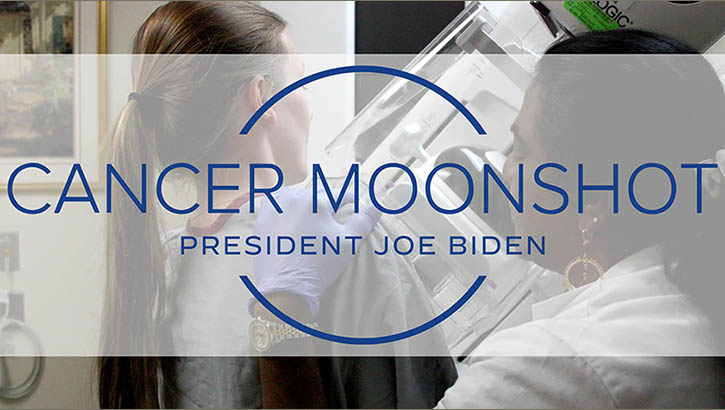On Feb. 2, 2024, President Biden celebrated the two-year anniversary of the reignited 2016 White House Cancer Moonshot initiative, an effort across multiple federal agencies aimed to reduce the death rate from cancer by at least 50 percent over the next 25 years. Cancer Moonshot is also focused on improving the experience of people and their families living with and surviving cancer, with a goal to ultimately end cancer. To that end, the military medical community has made great strides and advancements.
Uniformed Services University’s Murtha Cancer Center Research Program in Bethesda, Maryland leads the DOD’s component of Cancer Moonshot’s efforts. Among many groundbreaking research projects, the Program has achieved national acclaim for its role in ovarian cancer research, development of targeted therapies for breast cancer that doesn’t respond to treatment, as well as lung and skin cancer research.
In response to Cancer Moonshot, the DOD, the Department of Veterans Affairs, and the National Cancer Institute created the Applied Proteogenomics Organizational Learning and Outcomes Network. As a trial network, APOLLO was part of a White House "reignition" Fact Sheet: President Biden Reignites Cancer Moonshot to End Cancer as We Know It. APOLLO originally included 13 DOD and VA hospitals that launched eight cancer-specific programs, including studies in lung, breast, prostate, ovarian, pancreatic, testicular, and brain cancers. Today, APOLLO is comprised of 15 DOD and VA hospitals and has expanded to studies of all cancer types.

At its initial launch in 2016, Cancer Moonshot set forth three ambitious goals:
- Accelerate scientific discovery in cancer
- Foster greater collaboration
- Improve the sharing of data
Cancer Moonshot has united a large community of investigators and clinicians who are dedicated to expediting research to improve the lives of people with cancer and their loved ones.
Related Websites
You also may be interested in...
Topic
Apr 2, 2024
Men die an average of five years earlier than women and are at higher risk for serious diseases such as lung cancer, heart disease, and HIV. Familiarity with men’s health issues, regular screenings, and preventive care can be key in encouraging good health and long life.
Topic
Feb 8, 2024
The Military Health System provides comprehensive women’s health care, including reproductive health care and gender-specific care associated with cardiovascular health, mental health, and musculoskeletal injuries.
Topic
Aug 8, 2023
Knowing your body is the first step to understanding what is normal for you, when something changes and when you may be experiencing warning signs or symptoms of gynecologic cancer.
You are leaving Health.mil
The appearance of hyperlinks does not constitute endorsement by the Department of Defense of non-U.S. Government sites or the information, products, or services contained therein. Although the Defense Health Agency may or may not use these sites as additional distribution channels for Department of Defense information, it does not exercise editorial control over all of the information that you may find at these locations. Such links are provided consistent with the stated purpose of this website.
You are leaving Health.mil
View the external links disclaimer.
Last Updated: February 05, 2024